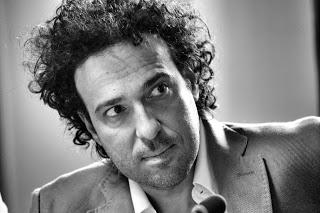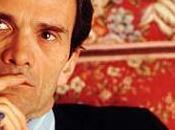Abbiamo chiesto a Luca dove andrà a finire il giornalismo partecipativo: a suo avviso si è trattato di una grande novità negli ultimi anni, ma bisogna distinguere tra le due parti del termine, ovvero "giornalismo" e "partecipativo". Sicuramente ha avuto un ruolo molto importante nel rinnovare i meccanismi giornalistici e nel farci scoprire molte cose che ignoravamo dei nuovi meccanismi mediatici della rete. Probabilmente non sopravviverà in quanto tale all'infinito: c'è però la prospettiva di una convergenza tra il giornalismo che verrà, e il modo in cui la gente vorrà che l'informazione venga fatta e le nuove modalità.
 Ci sono due filoni, le persone che hanno scoperto il giornalismo partecipativo pur senza provenire dalla scuola di giornalismo, e chi invece l'ha scoperto da professionista di questo mestiere: sono due filoni che si incontrano e si fondono, per trovare nuovi linguaggi con cui parlare ai lettori. E' chiaro che sarà necessario modificare il modo in cui il giornalismo "industriale" affronta l'informazione: ciò che viene fatto oggi con il giornalismo partecipativo, e con il meccanismo di filtri per verificare le notizie, non era assolutamente possibile nel giornalismo classico e tradizionale.
Ci sono due filoni, le persone che hanno scoperto il giornalismo partecipativo pur senza provenire dalla scuola di giornalismo, e chi invece l'ha scoperto da professionista di questo mestiere: sono due filoni che si incontrano e si fondono, per trovare nuovi linguaggi con cui parlare ai lettori. E' chiaro che sarà necessario modificare il modo in cui il giornalismo "industriale" affronta l'informazione: ciò che viene fatto oggi con il giornalismo partecipativo, e con il meccanismo di filtri per verificare le notizie, non era assolutamente possibile nel giornalismo classico e tradizionale.Sia il giornalismo mainstream sia quello partecipativo hanno già trovato modalità diverse: si fanno su Twitter, sui blog, con progetti specifici per estrarre informazioni ed elaborarle attraverso certi filtri, ma pian piano si incontrano e trovano punti di convergenza. Insomma, il futuro del giornalismo partecipativo è il giornalismo.
Abbiamo chiesto a Luca che cosa intende per user experience e come la integra al lavoro di giornalista: non è una cosa che viene sempre tenuta in considerazione, la user experience è una disciplina che tiene conto dell'esperienza dell'utente o dell'individuo in rapporto alla macchina. Si può tuttavia parlare di user experience anche in rapporto a dei prodotti digitali, come un sito web, un'app, o persino ai prodotti del mondo reale.
Se la si guarda così, la user experience è un concetto che può essere esteso anche ai quotidiani tradizionali, che hanno la loro user experience: se sono fatti bene, e sono pensati in maniera specifica per il loro scopo, si è coinvolti nell'esperienza di leggere gli argomenti in maniera molto naturale. Questa, dunque, è la user experience: raggiungere obiettivi che ci si prefigge per prodotto e servizio in maniera naturale, eliminando gli ostacoli.
Ovviamente non esiste una teoria assoluta di come far raggiungere gli obiettivi: l'errore fatto fino ad oggi è stato traslare perfettamente la user experience fatta per la carta direttamente sul sito web. E' un format familiare ma non pratico, né usabile per quello strumento: il futuro della user experience nell'informazione risiede nel trovare la natura specifica dell'informazione nelle modalità digitali, trovare nuovi linguaggi e nuove strutture.
Secondo Luca i giornalisti in Italia si stanno muovendo molto bene, cominciano a comprendere in maniera profonda i cambiamenti che sono avvenuti, e come utilizzare gli strumenti: dall'altra parte però ci sono gli editori che partono da una base offline e devono capire come fare editoria digitale. E' tuttavia diffuso l'atteggiamento di chiusura nei confronti di queste nuove prospettive, il che espone tutti a un fallimento. L'editoria che nasce invece già in rete può colmare questo gap o far fare al meccanismo un salto importante in avanti, che permetta che si sperimentino nuove cose, e perché fondamentalmente è l'unico modo per tirar fuori delle idee nuove e dei business model vincenti. In fondo questo è ciò che tutti si aspettano: che l'informazioni diventi remunerativa, popolare, e già ora si vedono i primi passi in questa direzione, anche se la strada è ancora molto lunga.
Abbiamo chiesto a Luca che cosa pensa del famoso detto "la rete non sposta voti" alla luce delle recenti elezioni politiche italiane: è innegabile che ci sia una relazione tra le attività sui social media e l'attività politica, specialmente in questi ultimi mesi, ma forse non ha senso domandarsi se Twitter o qualsiasi altro social network sposta voti. Il punto cruciale è che Twitter, Facebook, e altri social influiscono in tutta la sfera della vita di una persona.
Abbiamo parlato anche di exit poll, finanziamenti pubblici all'editoria e molto altro, quindi invito tutti a visionare l'intervista integrale!
Buona visione!
Maria Petrescu | @sednonsatiata
Intervistato.com | Luca Alagna
We interviewed Luca Alagna, who talked about publishing and new models, content curation and the new paradigms related to the production of content.
First of all we asked Pier Luca where the fracture between users and content producers lies: he believes it is obvious that there is a fracture, since the cultural industry as we know it functioned on the idea that content was scarce and that it was necessary to pay to have it. In exchange you got a service: finding books in the library and disks in the music store, it was possible to have access to the information they selected.
Now, however, the cultural grammatic has changed: the production costs are next to zero, everyone can produce and distribute their own content at ease. The gap is educational, we're not socially educated to navigate the abundence of news, books and content, and we don't know how to take the responsibility of mediation on ourselves, the one that used to be delegated to the selected few. If the world changes rapidly, nobody has the time to codify change, make it understandable and turning it into common cultural patrimony.
Another aspect we saw in our interview was the one of the balance between quality and quantity: Giuseppe believes that what we see happening now doesn't describe how things will be in a year's time. These are transitory situation, since they try to answer to a grammar that we still don't understand the functioning of.
The most reasonable prevision is of a New York independent editor, who pointed out a principle that is easy to grasp: it will be very difficult in the next years to make money by selling content. This is because evidently everyone can produce content, so it becomes complicated to give them a price.
The answer is that content of not excellent quality becomes a pure commodity: in the future, from the point of view of who works on content, the author's work will be rewarded, or a well done curation, the capacity of telling the story of a world by putting together different sources. You can hence have a higher comprehension, and save time. And the reader's time has an economical value.
During this time of great transition, the editors change their role, and one of the possible hypotheses is that they become content curators themselves. The great problem of editors is understanding how to survive today: what do they offer more, how can they guarantee to sell more books than someone who publishes independently? In the States they say that the true enemy isn't piracy, but obscurity: the problem is to make your content more visible in a world in which everybody produces content. And this is the issue editors must learn to solve.
The figure of the curator already has an extremely important role: if you try to reconstruct an event, as a reader, you can spend an afternoon of research and study. If you find someone who has already done the work for you, who has built a good curation, and didn't just give the news but actually built a wide scenario, then you discover that you saved time, which has a great value because it is your scarce resource.
We asked how the curation platforms will evolve: in Giuseppe's opinion, the value of curation isn't in the tool, but in the cognitive capacities, the cultural references and the method of who does it. The platform is just a tool, and for how he sees it, a good curation can be done splendidly in a blog.
Of course, I invite everyone to view the full interview, much richer in details than my brief analysis.
Enjoy!
Maria Petrescu | @sednonsatiata





